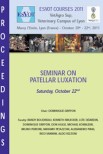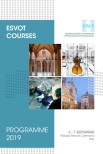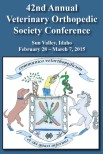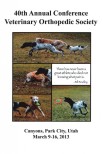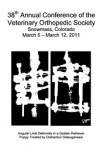OBJECTIVES: To investigate whether administration of postoperative oral antimicrobial drugs has a beneficial effect on preventing surgical site infections (SSI) in clean orthopedic surgery involving stainless steel plating systems.
STUDY DESIGN: Randomized prospective clinical study.
ANIMALS:Dogs (n = 97).
METHODS: One hundred consecutive cases (97 dogs) that had clean orthopedic surgery requiring stainless steel plate fixation were randomly assigned using a random number generator to either YES group (administration of postoperative oral antimicrobials) or NO group (no administration of postoperative oral antimicrobials). Dogs in YES group were administered oral cefalexin or potentiated amoxicillin for 7 days, whereas dogs in NO group were discharged without oral antibiotics. Minimum follow-up was 12 months. Multivariable logistic regression was used to determine risk factors for SSI.
RESULTS: Overall postoperative infection rate was 12.9%. Infection occurred in 2 cases (4.3%) administered postoperative oral antimicrobials and in 10 cases (21.3%) not administered postoperative antimicrobials. Total anesthetic time and use of oral antimicrobials were the only significant factors associated with SSI. Use of postoperative antimicrobials was associated with a significant reduction in the risk of infection by ~84% and risk of infection was increased by ~2% for each minute increase in anesthesia time.
CONCLUSIONS: Administration of oral postoperative antimicrobials had a protective effect against development of SSI in clean orthopedic implant surgery.
Efficacy of postoperative antimicrobial use for clean orthopedic implant surgery in dogs: a prospective randomized study in 100 consecutive cases
Journal
Pratesi A, Moores AP, Downes C, Grierson J, Maddox TW. Vet Surg. 2015 Mar 10
